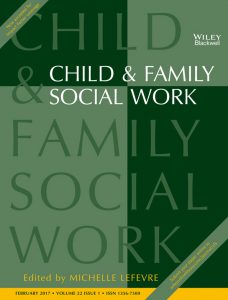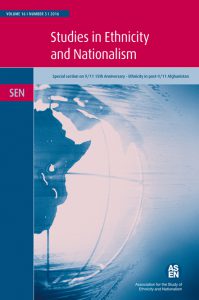"I'll have the extreme creampie MILF, please.": What can PornHub's research teach us about sex?
The pornography search engine PornHub, for reasons I can assume only they know, appear to have become sociologists. Using the collected data they have from their search engine that provides access to many free pornography sites, they have started a blog called ‘PornHub Insights’. This offers exactly what the name suggests – research and analysis directly from the ‘Pornhub team’, offering insights based on their data as to the numbers of viewers they have, how long they watch, and from where. Their most recent posts discuss, for example, their traffic changes during key social events (during the American football Superbowl they experienced a traffic drop equivalent to over 300 million viewers). In terms of mapping what people do, this data has huge potential. I have elsewhere discussed the effects of Big Data for Sociology, and how we grapple with the fact that large organisations hold more data about people than social or academic research can hope to gain. This is a challenge for sociological research and thinking, and it is fascinating to have such a large-scale amount of research on people’s sexuality. Whilst people may be reluctant to express their deepest, darkest desires to an interviewer or in a questionnaire, every time we use the internet to request something we want (and can get so easily for free), we give this information to a company that can do what they like with it. This has huge implications for sex researchers.
Their useage of data gets even more interesting now they have started using it more creatively. They are building visualizations of their data, the most recent of which produced a live feed of their search terms. It provides a scrolling feed of everything being searched on its database in real time. They range from the sublime to the ridiculous, some shocking or extreme and others that are borderline meaningless, but all incredibly revealing about our deepest and most carnal sexual desires. What do people think and want when no one else is watching, when the only way you have to ask is to absentmindedly type it into a search bar? It’s all there, scrolling in front of you, hundreds of thousands of requests and motives and desires from all over the globe. I went from repulsed to fascinated. I find myself drawn to it, like Pharrell Williams’ 24-hour music video I find myself going back to in at unusual times of the day to see patterns and changes. Probably the weirdest and, at times, repulsive example of Big Data.
In addition to the general top searches, the database also allows the searcher to look at the most common searches in different countries. After just a few minutes searching I had already discovered that citizens of most countries are likely to search their own nationality. ‘British’ is a top search in the UK, ‘Brasil’ in Brazil, etc. Others suggest different kinds of national preferences, what would be referred to as orientalism and exoticism; ‘Japanese’ ‘Asian’, ‘Chinese’ and ‘Hentai’ all crop up very often, particularly in Western cultures such as the UK or Australia. In Ireland ‘drunk’ is second only to ‘gangbang’. In Hungary, the second and third most common searches are ‘Mom and Son’, and ‘Mom son’, and incest plays a common theme throughout. In Romania ‘mom and son’ features three times in various formations, along with, most worryingly, ‘slave’. Even in this crude model we can see sociological phenomena, stereotypical tropes and norms, and it is an extremely useful tool for examining national and international differences in sexual desires, and perhaps behaviour.
The study of sexuality and sexual practice is a deep and rich area, and not one that I ever expected to combine with Big Data in such an obvious way, or to advocate such quantitative methods. There is an increasing plethora of perspectives from which Pornography is being studied,. One example being the launch of a new Journal ‘Porn Studies’, that aims to move the debate around pornography from the dichotomy of cheerleaders and naysayers into a more nuanced understanding of its useage and production. This hub may therefore be able to add useful quantitative analysis of exactly what people are looking for, something it is often difficult to get an accurate picture of. Pornography debates often focus around its consumption without examining motivations or desires, and this is its shortcoming.
It is often easy to see what people do, but a lot more difficult to explain why they do it. My motivations say much about ‘who I am’, my social position and my expectations. Why do I want the things that I want? Why do I feel guilty or proud of wanting these things? This is where Sociology comes back into its own. Because none of these these things should be limited to psychology or biology or, even worse, to the blog posts of a pornography search engine.
References and Further Reading





1099-1328/asset/dsa_logo.jpg?v=1&s=e4815e0ca3064f294ac2e8e6d95918f84e0888dd)
